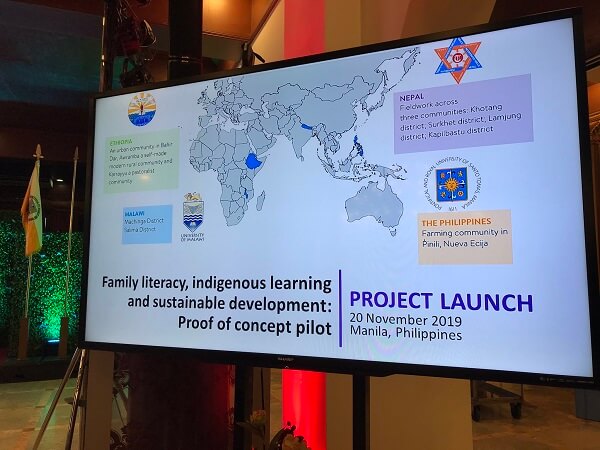)
The Family Literacy Sub-Project of our Global Research Translation Award (GRTA) Project is working with partners in four countries (Ethiopia, Nepal, Malawi and the Philippines) to develop a more sustainable, relevant and 'bottom up' approach to family literacy.
750 million adults, two-thirds women, are reported to be illiterate in the world today. Adult literacy and learning has been referred to as the ‘invisible glue’ between the SDGs, yet in policy and practice is often seen as a low priority.

The project’s approach is to embed literacy in people's everyday activities and use indigenous learning practices that can influence family well-being and livelihoods. In collaboration with UNESCO Institute for Lifelong Learning, the UEA UNESCO Chair partner universities in Ethiopia, Nepal, Malawi & the Philippines are carrying out comparative ethnographic studies on indigenous approaches to intergenerational learning and knowledge creation.
The project includes research-policy interaction and dissemination activities to engage international, national and local stakeholders. Its major objective is to bring policy makers' and educators' attention to the disjunction between current mainstream approaches to adult/family literacy instruction and the ways in which adults and children learn in everyday life in order to enhance the contribution of education to sustainable development.
Project partners
- Ahmmardouh Mjaya, Symon Chiziwa and Jean Josephine Chavula, University of Malawi, Malawi
- Sushan Acharya and Kamal Raj Devkota, Tribhuvan University, Nepal
- Turuwark Zelalem, Abiy Menkir Gizaw, Yereswork Megerssa Bedada and Tizita Lemma, Bahir Dar University, Ethiopia
- Gina Lontoc, Camilla Vizconde and Belinda De Castro University of Santo Tomas, Philippines
- Anna Robinson-Pant, School of Education and Lifelong Learning, UEA, UK
- Catherine Jere and Sheila Aikman, School of Global Development, UEA, UK